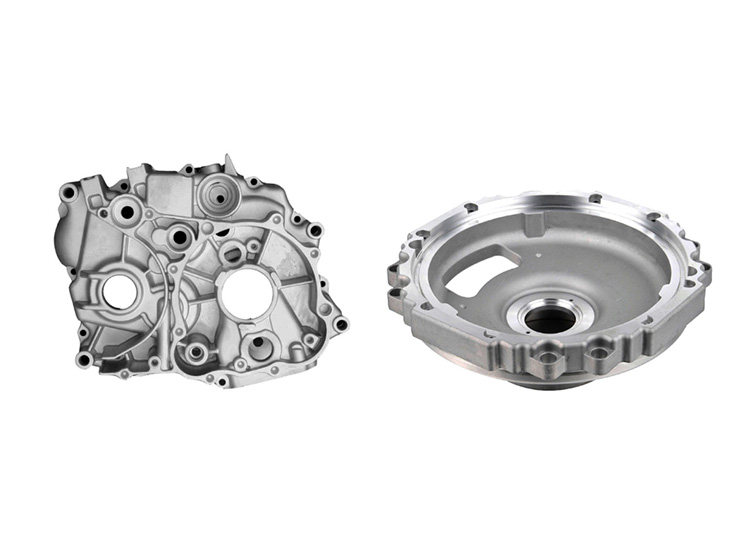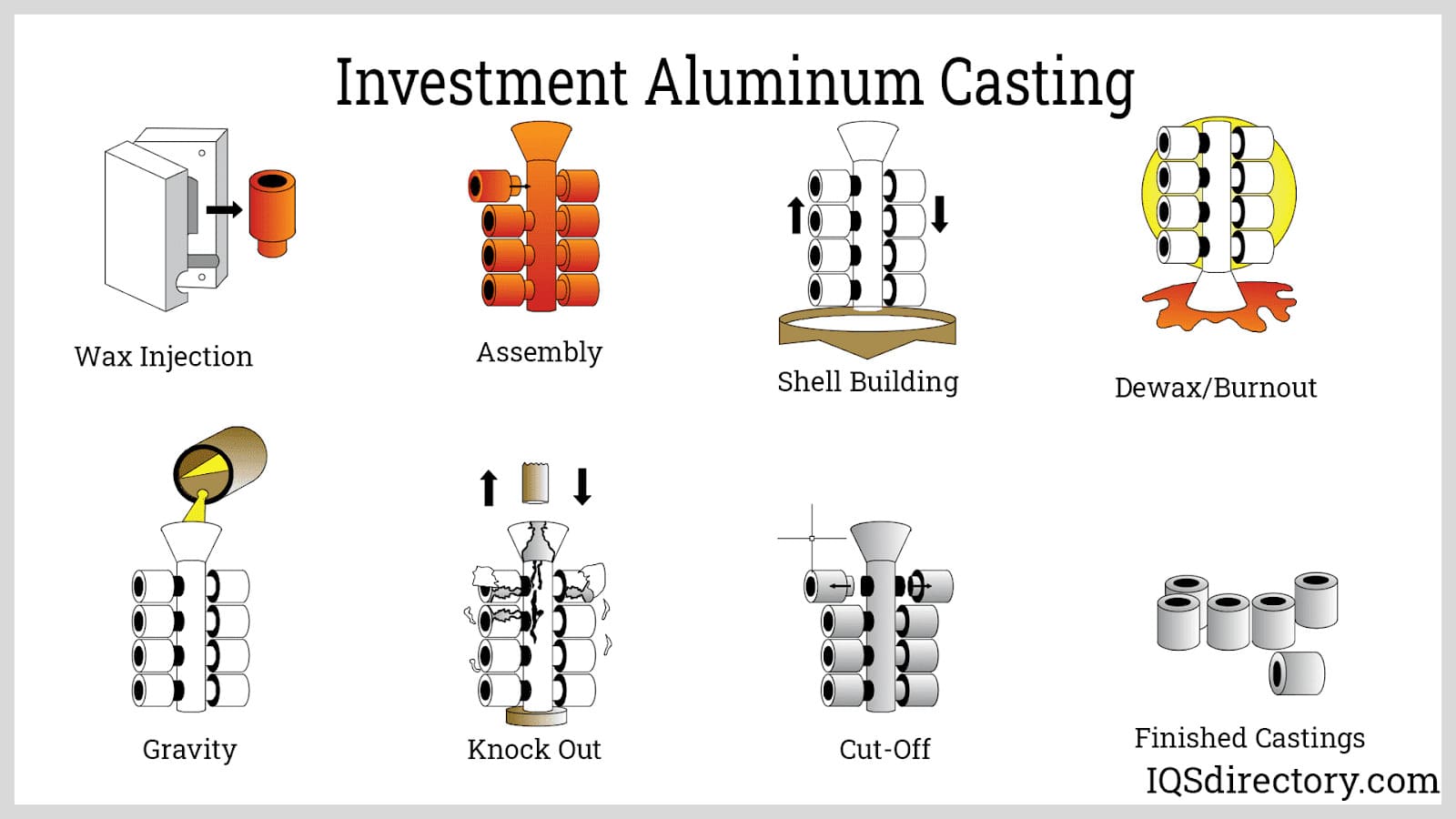Stahl Specialty Company - An Overview
Stahl Specialty Company - An Overview
Blog Article
The smart Trick of Stahl Specialty Company That Nobody is Talking About
Table of ContentsSome Ideas on Stahl Specialty Company You Need To KnowThe 7-Minute Rule for Stahl Specialty CompanyThe 30-Second Trick For Stahl Specialty CompanyThe 5-Minute Rule for Stahl Specialty CompanyStahl Specialty Company - Questions
Chemical Contrast of Cast Light weight aluminum Alloys Silicon promotes castability by lowering the alloy's melting temperature level and enhancing fluidity during spreading. Furthermore, silicon adds to the alloy's toughness and put on resistance, making it useful in applications where longevity is crucial, such as vehicle parts and engine components.It also improves the machinability of the alloy, making it simpler to process right into finished products. In this method, iron adds to the total workability of light weight aluminum alloys. Copper raises electric conductivity, making it helpful in electrical applications. It also boosts deterioration resistance and includes in the alloy's total strength.
Manganese adds to the toughness of aluminum alloys and improves workability. It is commonly made use of in wrought aluminum products like sheets, extrusions, and accounts. The existence of manganese aids in the alloy's formability and resistance to splitting throughout fabrication procedures. Magnesium is a light-weight component that offers stamina and influence resistance to aluminum alloys.
It allows the production of light-weight elements with excellent mechanical homes. Zinc enhances the castability of light weight aluminum alloys and assists control the solidification process throughout casting. It improves the alloy's strength and solidity. It is usually located in applications where elaborate forms and great details are essential, such as ornamental spreadings and certain auto parts.
Stahl Specialty Company Can Be Fun For Everyone
Because aluminum-silicon alloys have good spreading properties, high gas properties, easy processes, and outstanding rust resistance, aluminum-silicon alloys are most commonly made use of in the die-casting market in your home and abroad. At the very same time, aluminum-silicon alloys are likewise fairly early and commonly recognized alloys established and utilized in die-casting. After continual research study and enhancement, many of the current international mainstream aluminum-silicon alloys have actually been wrapped up and are absolutely nothing even more than A356, A360, A380, ADC12, B390, and A413.
The primary thermal conductivity, tensile strength, yield toughness, and prolongation vary. Select suitable raw materials according to the efficiency of the target item produced. Among the above alloys, A356 has the highest thermal conductivity, and A380 and ADC12 have the cheapest. The tensile limitation is the contrary. A360 has the very best yield stamina and the highest elongation rate.

The Buzz on Stahl Specialty Company
In accuracy casting, 6063 is appropriate for applications where complex geometries and high-grade surface area finishes are vital. Instances consist of telecommunication units, where the alloy's exceptional formability enables for sleek and cosmetically pleasing styles while maintaining architectural honesty. Likewise, in the Lights Solutions sector, precision-cast 6063 components produce elegant and reliable lights fixtures that need elaborate forms and great thermal efficiency.
(https://www.magcloud.com/user/stahlspecialc)
The A360 shows exceptional prolongation, making it ideal for complex and thin-walled parts. In precision spreading applications, A360 is appropriate for sectors such as Consumer Electronics, Telecommunication, and Power Tools.

In precision casting, aluminum 413 radiates in the Consumer Electronics and Power Devices industries. It's commonly made use of to craft intricate elements like smartphone housings, electronic camera bodies, and power tool cases. Its accuracy is exceptional, with limited tolerances up to 0.01 mm, ensuring remarkable item assembly. This alloy's exceptional corrosion resistance makes it an outstanding choice for exterior applications, ensuring resilient, resilient items in the pointed out sectors.
Excitement About Stahl Specialty Company
As soon as you have made a decision that the light weight aluminum pass away casting procedure appropriates for your job, an important next step is deciding on the most proper alloy. The aluminum alloy you select will significantly affect both the casting procedure and the residential or commercial properties of the last product. As a result of this, you must make your decision meticulously and take an enlightened method.
Identifying one of the most suitable aluminum alloy for your application will suggest weighing a wide selection of attributes. These comparative alloy features adhere to the North American Die Spreading Association's standards, and we've divided them right into 2 categories. aluminum metal casting. The first category addresses alloy characteristics that here are the findings influence the production process. The 2nd covers characteristics impacting the buildings of the last item.
The alloy you choose for die spreading directly affects several aspects of the casting procedure, like how very easy the alloy is to deal with and if it is susceptible to casting flaws. Warm breaking, additionally understood as solidification splitting, is a typical die casting flaw for light weight aluminum alloys that can lead to internal or surface-level splits or fractures.
Stahl Specialty Company - An Overview
Particular light weight aluminum alloys are a lot more at risk to hot splitting than others, and your choice needs to consider this. Foundry near me. It can damage both the actors and the die, so you must look for alloys with high anti-soldering residential or commercial properties.
Rust resistance, which is already a remarkable quality of aluminum, can vary considerably from alloy to alloy and is an important particular to take into consideration depending upon the environmental problems your item will certainly be exposed to. Put on resistance is an additional building commonly looked for in light weight aluminum items and can distinguish some alloys.
Report this page